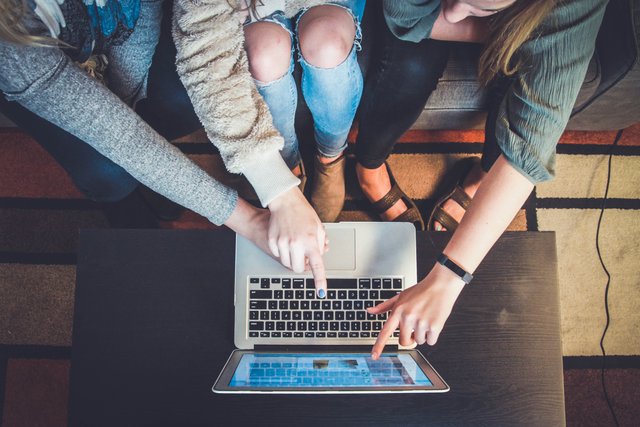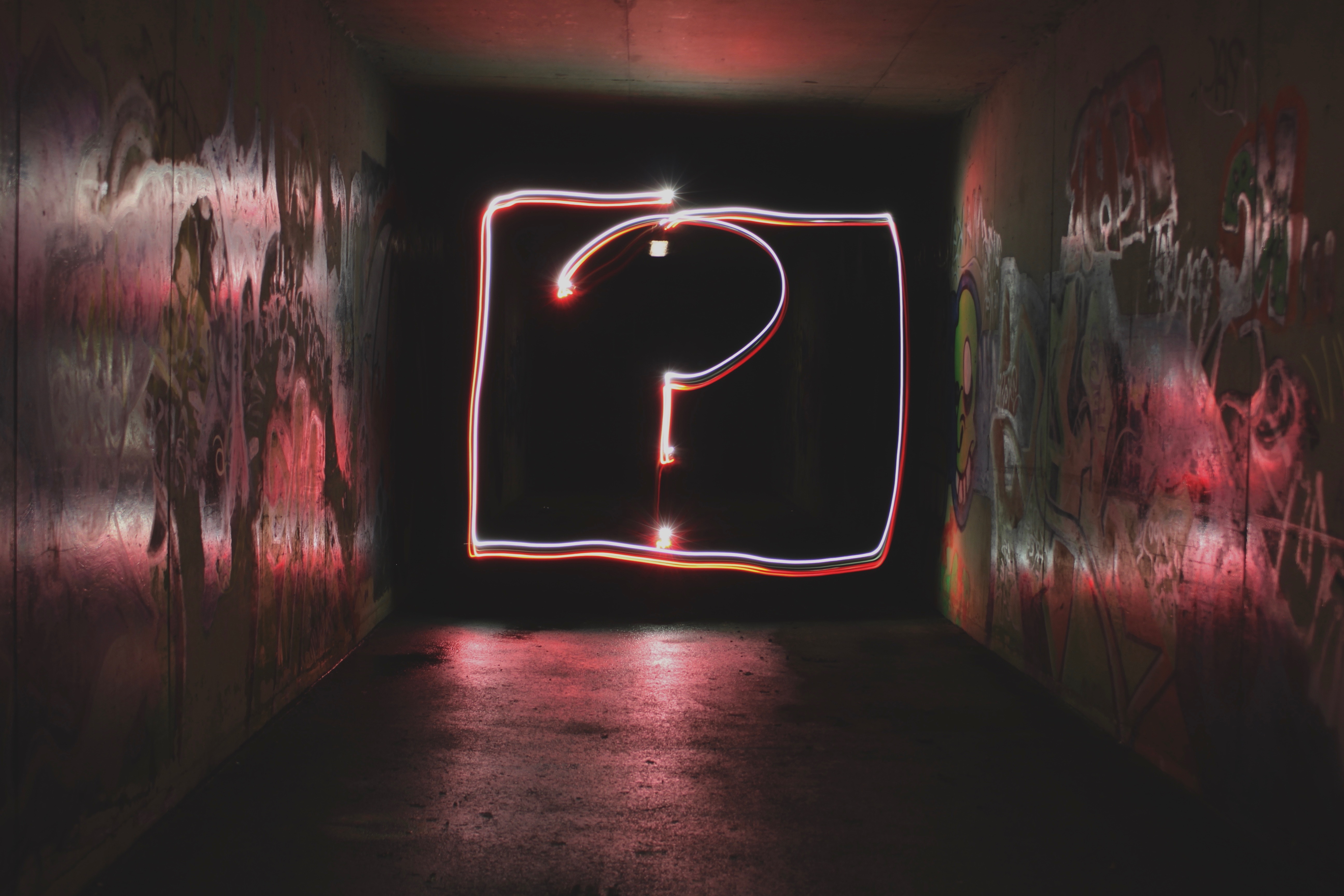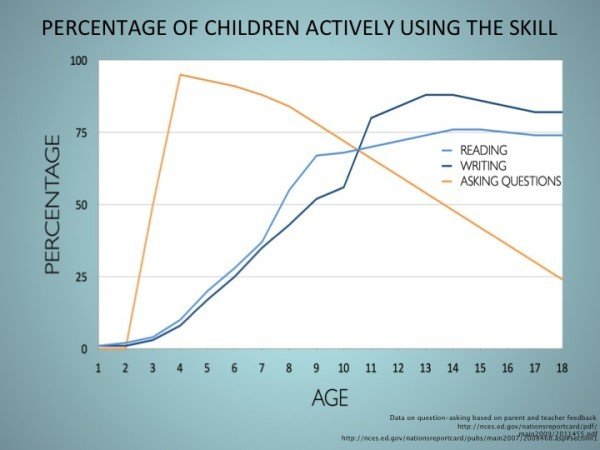While studying the process of devised theatre and generating new works of art in school, I took one class that changed my outlook on life and creativity by asking me to read a single book: The Art of Asking by Terry Fadem.
Although this book is not “philosophical", it is invaluable because it provides a technical breakdown of how to ask questions that spark interesting, productive answers and subsequent results. In particular, this toolkit is targeted to folkx who lead or manage groups of people.
Before we begin, here’s something to think about as you read: When was the last time someone asked you a really good question?

As an artist, my niche is working within a group or community to unearth stories and material through a devising process.
Sometimes I wear the hat of a Teaching Artist, sometimes the hat of a Director, and most often I live somewhere in the middle as a Facilitator/Leader of a creative process resulting in a piece of new art. I also consult artists and organizations, by asking them questions that help them tell their story more effectively.
In truth, a great deal of my personal success has come from my ability (an ability I have built, and continue to hone) to ask questions. I am always evaluating and re-eavaluating the world around me. Through this process I am able to adapt and rest assured that I am making informed, critical decisions that have been thoroughly vetted.
If I had an hour to solve a problem and my life depended on the solution, I would spend the first 55 minutes determining the proper question to ask, for once I know the proper question, I could solve the problem in less than five minutes. -- Albert Einstein

First of all, here are the reasons questions are most commonly asked
(1) The question is seeking an answer
This might seem obvious, but there are shades of subtlety here. In this case, a question is posed because the asker is seeking information that either a) they don’t know, or b) they want the other person to discover/share.
(2) The question is opening an exploratory dialogue
In this case, a question is posed as a starting point of exploration. This is one of the most common reasons that I ask questions personally. For example, I’m working in a prison with 27 men to devise a new piece of theatre about American violence right now: I ask questions that encourage participants to explore topics deeply...and I ask questions that dig into interesting statements made throughout the conversation to bring more potential material to light.
(3) The “process" of the question is important
In this case, a question or series of questions is applied to a topic. An example of this in my own life--I work in Seattle with a variety of organizations who submit projects through a racial justice filter. The City of Seattle has a remarkable Race and Social Justice Initiative and part of their work is maintaining a rubric of questions and evaluation points for organizations to use when assessing projects through an equity lens.

Questions are a powerful way for us to analyze information and discover new meaning and opportunities within the world around us.
However, data shows that children typically hit their peak question-asking prime at the age of 4. Studies seem to suggest that restrictive, goal-oriented school environments naturally quell the tendency to ask questions in youth. Instead, there is a focus on uniformity, discipline, and unquestioning faith in the curriculum as taught. Divergent thinking is not considered a valued asset in youth in any school public school environment I have ever taught in.

It’s incredibly important to reclaim your ability to ask questions and your ability to see the world with fresh eyes.
Much of my theatre work is based in the theatrical technique known as Theatre of the Oppressed by Brazilian revolutionary and artist Augusto Boal. In his seminal text Theatre of the Oppressed, he talked about the desensitization of the common human.
In particular, he speaks about how our senses have been numbed. We see, hear, smell, taste, and touch only part of what is in the world around us. Think about it, when was the last time you can remember something in perfect detail with all of your senses?
Much of work in group settings is focused on physical and intellectual exercises that break artists out of their expected routines so that they can be more present, engaged, and critical of the work we are creating. To Boal, the creative process involves reawakening your senses to the world so that you can truly see what is in front of you and begin to examine it. When the familiar becomes unfamiliar, we are left with questions--and new discoveries to make.

Here is how I believe questions can help you in your everyday life:
(1) Adaptability
Being able to ask questions allows us to have a better chance at adapting and thriving in unfamiliar or changing situations. Asking good questions keeps your mind flexible and open to new opportunities. You may also find that you are able to challenge yourself to see a situation from a new angle that unlocks a myriad of possibilities.
(2) Deeper Understanding
Being able to ask questions will give you a deeper understanding of the world around you. When presented with information you will be able to find the unspoken question-marks within the world around you and begin to understand the vast intersectionality at play in all issues, policies, and institutions.
(3) Greater Empathy
Being able to ask questions will lead you to having deeper empathy for the people in this world. When you ask questions genuinely seeking an answer you will find yourself able to connect with people from anywhere--and in so doing begin to authentically understand their point of view.
(4) Expanded Self Identity
Being able to ask questions will lead you to expand your own definition of self. As you analyze the world around you, you will naturally decide what you agree (or do not agree) with. You will find values that you will uphold, and causes that inspire you. Your own passions, interests, and ability to engage will grow exponentially.

But don’t forget...asking good questions is hard! It takes practice.
Like many good things, asking a great question takes some thought and practice. One rule of thumb I always apply: I don’t ask the questions unless I’m a) genuinely interested, and b) unable to find the answer easily on my own.
And that is all for now, my friends!
And finally, here’s what I’d like to know: When was the last time someone asked you a really good question?


I just went to prison for 5 months. Again. | 04
The State of the Art | Race and gender in American theatre.
What is Art and Who Defines It?



The answer to your question, of course, is 'just now' ;-)
Great post and really really important to keep wondering, keep asking, keep connecting through understanding <3
Downvoting a post can decrease pending rewards and make it less visible. Common reasons:
Submit
Thanks so much for stopping by to check this out and support, I appreciate it. :) Ha, and thanks for enjoying the question.
Downvoting a post can decrease pending rewards and make it less visible. Common reasons:
Submit
My best friend is the best at creating questions. She's an artist. She has a whole set of really intriguing questions and hand-wrote them on big cards because she believes also the way we even get handed the question is important. (Like: if you have this big card in your hand you're sort of allowed to 'really' take time to read it, ponder it, while playing with the card, then answer the question.)
I might never get her onto Steemit, but I might see if I get her to share some questions via a guest-post on my blog?
Thanks, you got me thinking.
Downvoting a post can decrease pending rewards and make it less visible. Common reasons:
Submit
This is awesome...I love the idea that the vehicle for the question is also part of the process! Such a lovely concept, would love to read a guest-post from her if you can get her to write one!
Downvoting a post can decrease pending rewards and make it less visible. Common reasons:
Submit
Maybe I'll make it my first Steemit interview :-)
Downvoting a post can decrease pending rewards and make it less visible. Common reasons:
Submit